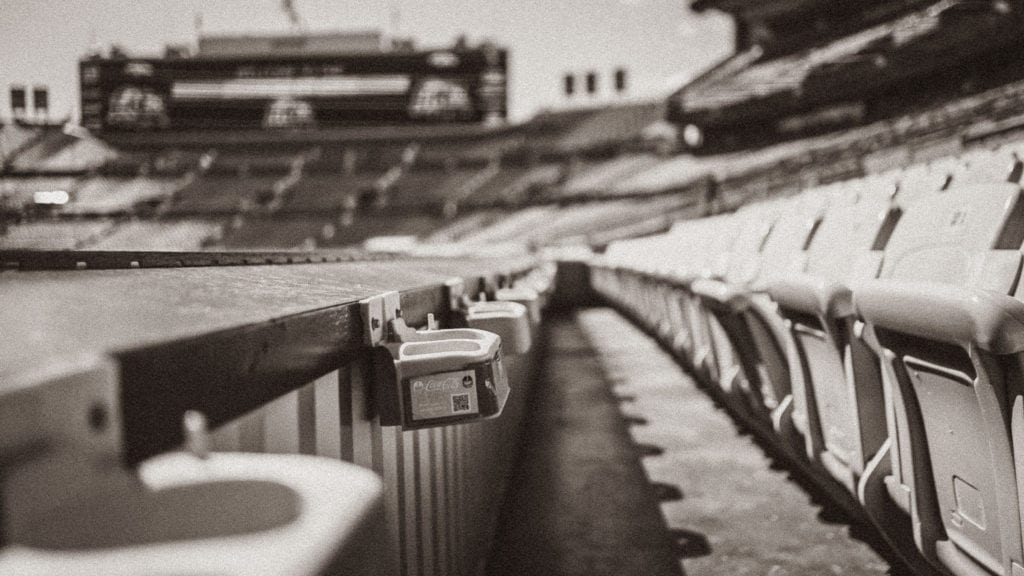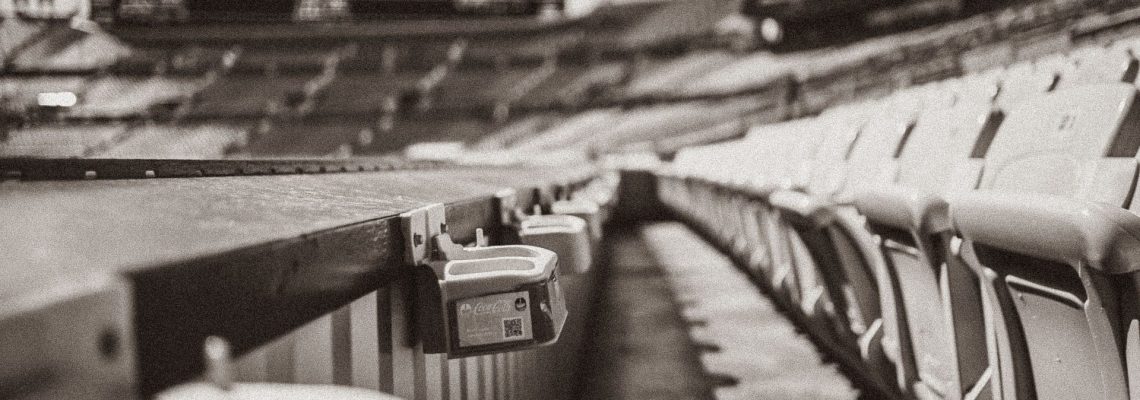*This article may contain product links which pay me a small commission if you make a purchase. Learn more.
The duffle bag made a long journey, ending in a Dominican orphanage.
It was a huge catchers’ gear bag, big enough to handle a bunch of bats, a full set of gear, jerseys, gloves, pants — all of it. On the end was the #8, proudly embroidered in white with a red border. The navy-blue bag was team property but still felt special, an extension of the high hopes I held for the season ahead.
In February of 2011, I had been traded to a new team called the Lake County Fielders, an expansion team in a brand new conglomerate called the North American League. Other member teams were from Calgary, Edmonton, Yuma, and Maui to name a few, and because of their distance my squad — in the Chicago area — would be flying to all our games.
Yet just seven weeks later, I found myself in the clubhouse packing my possessions and scrambling to pay myself in stolen team gear. Seven weeks later, the team was breaking up because our paychecks had bounced for the last time. Seven weeks later, I was stuffing my favorite new bag full of baseballs, bats, catchers gear and anything else I could find, preparing to walk out the door for the last time.
Little did I know, that navy-blue duffle bag — zipper nearly bursting with my gear and that stolen as recompense from a crooked baseball team owner — would travel thousands of miles and end up where the game of baseball is played in its purest form.
Baseball, The Dominican Way
Seven years later, cleared customs and took my first breath of the thick, warm air of the Dominican Republic. I had arrived there to coach a youth baseball team made up of American boys from cities all over the United States. It was a cultural trip more than a baseball trip, allowing these young men to experience a new country through a their favorite sport. Between Americans and Dominicans, beisbol was the universal language that could unite the two very different cultures.
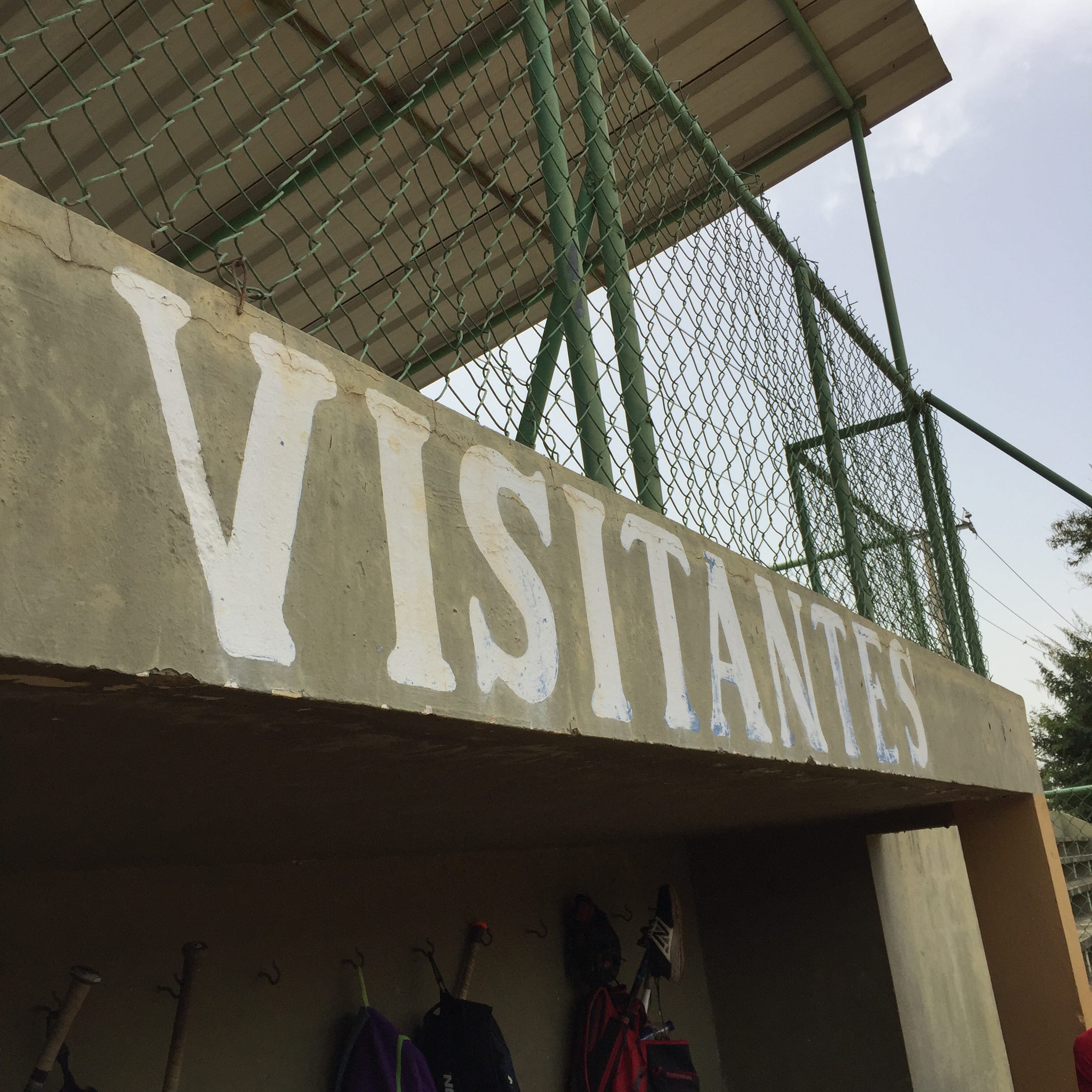
In preparing for the trip, I was asked to bring baseball equipment both new and used to donate. Though the Dominican Republic produces an astonishing number of Major Leaguer Baseball players, the kids who fight to make it out of poverty by with a professional baseball contract do so with almost nothing.
They play on rocky dirt fields with dead grass, trash scattered in foul territory, stray dogs napping in the bleachers. Their equipment consists of whatever was donated to them, with few players having the financial means to purchase a new pair of baseball pants, bat or a mitt. They practice and play in the hot sun, often with no water cooler in the dugout and no food in their stomachs. Baseballs get used until their covers wear off, after which they’re taped and thrown back into circulation.
I posted a message to my Facebook page asking for donations — cleats and used mitts that I could stuff into my navy-blue duffle bag, now a few years since collecting dust. I — along with all the others on the trip — would pack 50 pounds of gear inside and leave it in the hands of these young ballplayers who so desperately needed it.
Within 24 hours, I had three times more equipment (some 80 pairs of shoes and cleats and 20 baseball gloves) than I could carry. I picked out the best, stuffed it in tightly and bagged the rest to give to a local charity. I had let go of baseball myself — retiring after seven years chasing my own dreams — just two years prior. My navy-blue duffle bag had been put on the shelf along with me, but was coming out of retirement for one last road trip.
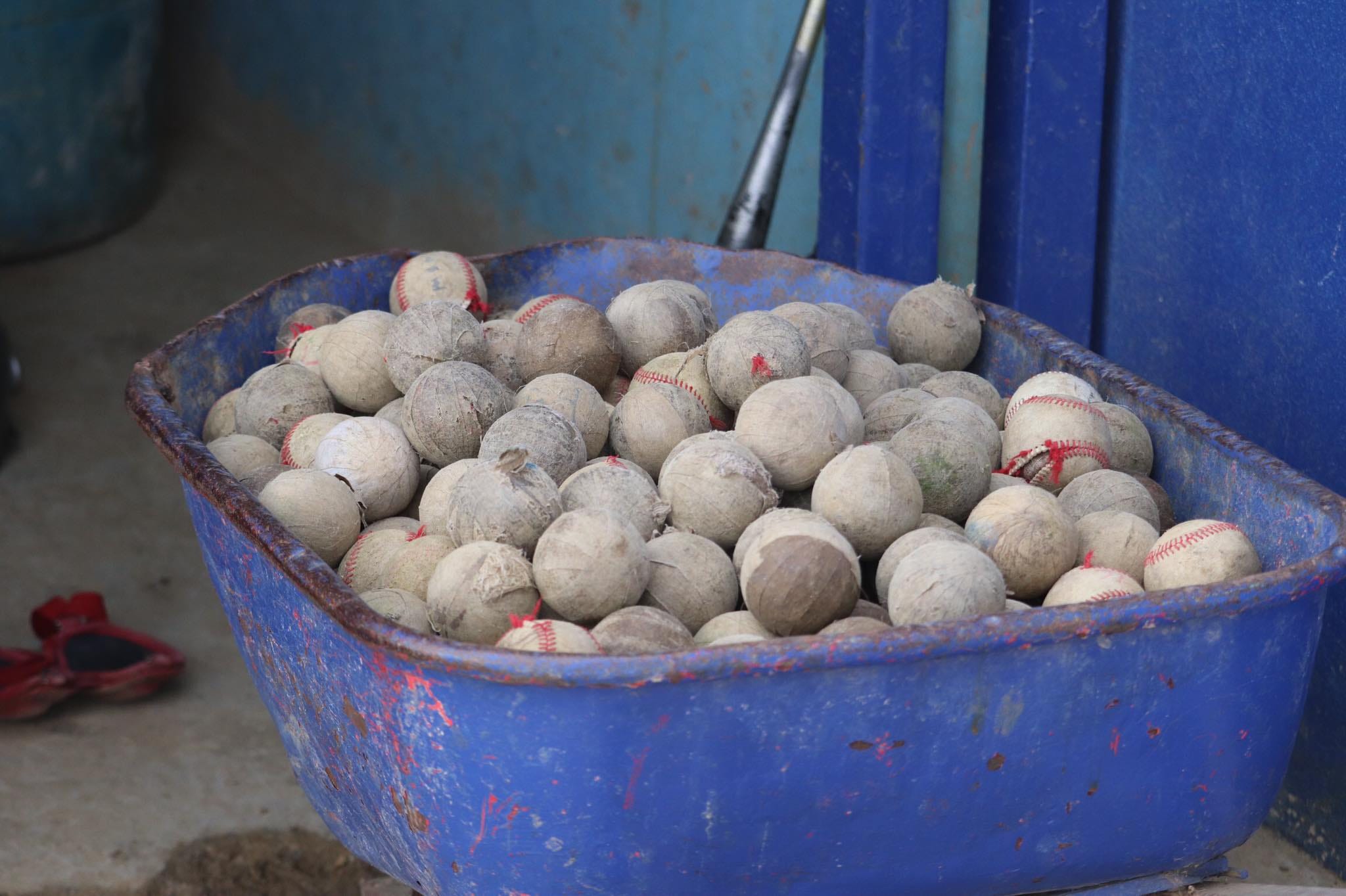
La Otra Banda
La Otra Banda is an orphanage in Santiago, Dominican Republic. Translated, it means The Other Way. It was our fourth stop on our tour of local baseball academies, competing against each one on their home field. After each game, we’d take photos with the local players, give each player and coach a small gift and leave some of our equipment with the club.
At La Otra Banda, however, our visit was a bigger deal than at the other stops on our tour. The Padre (the father who ran the orphanage) had an elaborate ceremony for us, complete with both the Dominican and American national anthems. He expressed such deep gratitude and excitement that we took the time to compete in a game against their players, the orphaned boys who had an even harder life than most.
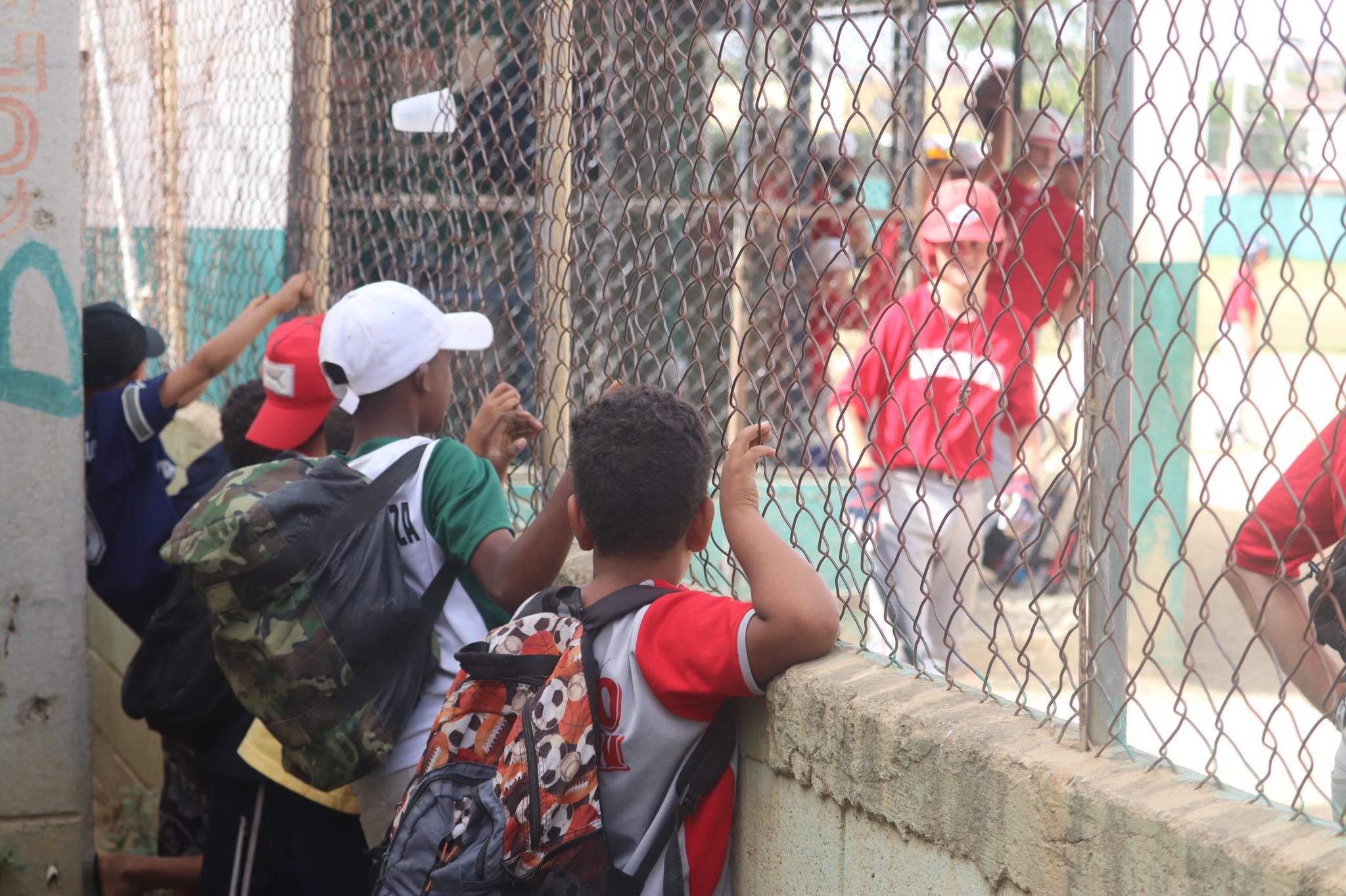
Our presence in the sprawling complex was conspicuous, and we were followed by a band of boys too young to play, who called out to us Hey Americanos! as we strolled to the field, took our warm up swings, and jogged in between innings. A chestnut brown stray dog — a mutt who clearly had some pitbull in him — plopped down in the shade in front of our chain-link and concrete dugout. He was sluggish, ribs clearly visible with a thirst and hunger that likely never fully abated. Our players remarked at how thin he was, all of us instructed not to pet him, something the poor pup also hungered for.
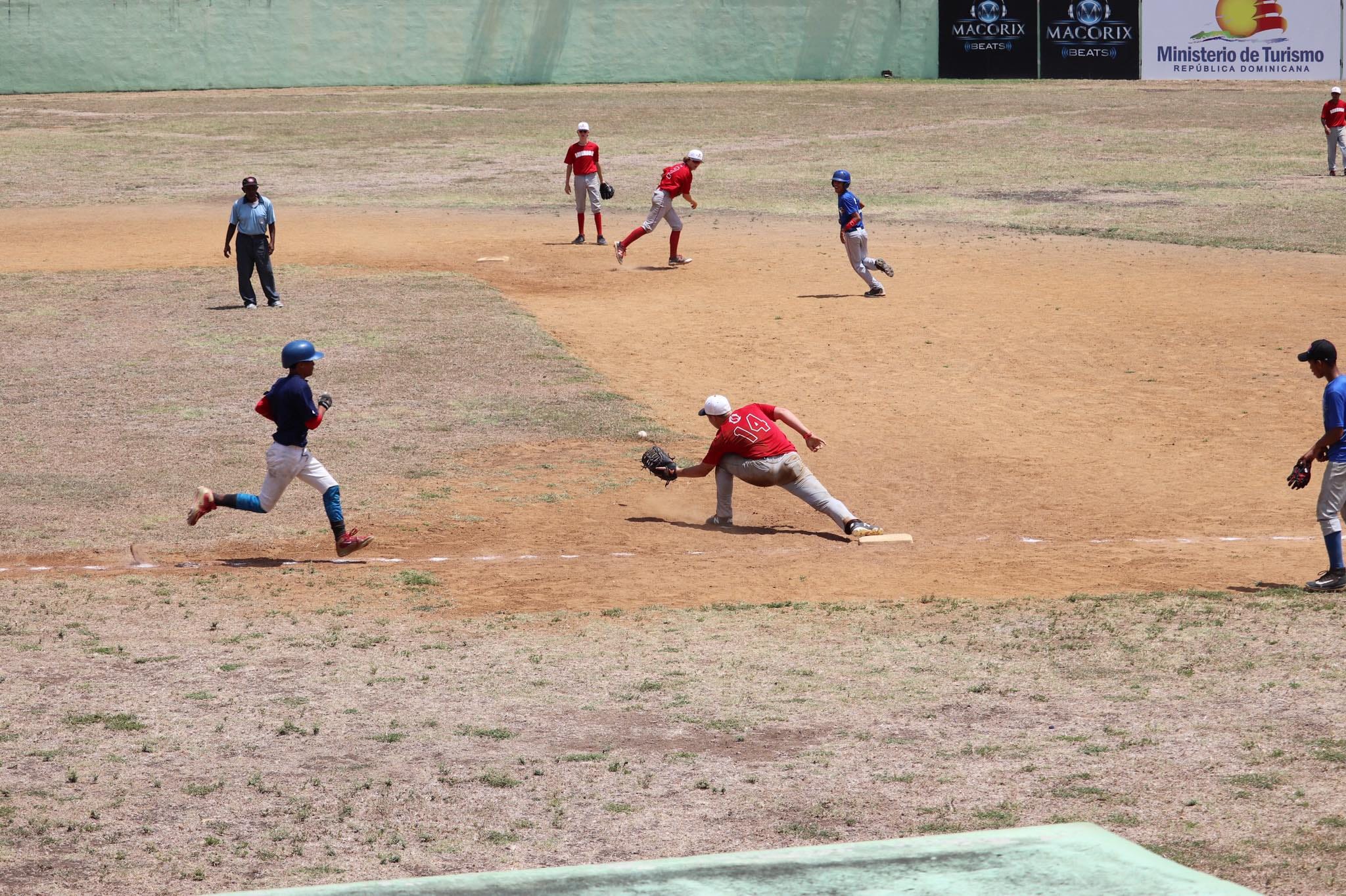
We won the game on the back of a Dominican pitcher named Wylie, a young man who pitched five strong innings for us. Our roster 12 American players was a mixed bunch, and we fell a little short on pitching. Manny, the Dominican trainer who arranged the games, brought our cooler of purified drinking water and guided the entire baseball operation, had arranged for Wylie and other local players to help us make it through a tough week of seven games in six days with only five or six real pitchers.
Wylie was 17 years old, a nice young man with a nasty slider and a fastball that sat 85–86 miles per hour, which is outstanding for his age. Sadly, Wylie may not have a future in baseball. In the Dominican, if a pitcher doesn’t sign a professional contract by 19 at the latest, he’ll never be signed. MLB teams want young players with amazing talent. At 5’11” and maybe 165lbs, Wylie was an exceptional young pitcher — someone would be committed to playing Division-II or Division-I baseball in the United States. But without throwing in the 90s, and without a large, tall, “projectable” frame, it maybe unlikely he reaches the next level. The only “next level” in the Dominican is professional baseball. For those who aren’t good enough by the scout-imposed cutoff points, their Major League dreams simply come to an end.
Dominican players who have talent and speak English might get a chance to play college baseball in the United States if they met the right people. Wylie didn’t speak English. But one such young man — Mateo — served as our first base coach and translator for the week. Mateo attends an American high school and will likely get a chance to play college baseball. He speaks decent English, but passing American college classes in his second language will be a challenge, just like it would for anyone taking high-level courses in a non-native tongue. He’s an outlier, unfortunately.
It felt downright unfair to watch Wylie mow down 10 hitters in a game, knowing that his career would likely come to a close in a year or two. If he was born in America, he’d be given an athletic scholarship and have six more years to develop into an MLB draft pick. And, he’d probably get there. The kid was good, but not quite good enough for the accelerated process of Dominican baseball. His only was mistake was being born in the wrong country.
After an 8–4 victory over the ballplayers of La Otra Banda, we shook hands, took photos and gave the opposing players small gifts — baseball cards, gum, candy, t-shirts, used cleats, gloves and bats from our cache of privilege back home in los Estados Unidos. We had one more gift, but it had to wait until post-game refreshments in the cafeteria: the navy-blue duffle bag filled with donated equipment for the orphanage. It was to be presented to the Padre after the game, and the duffle bag was staying there at La Otra Banda with them.
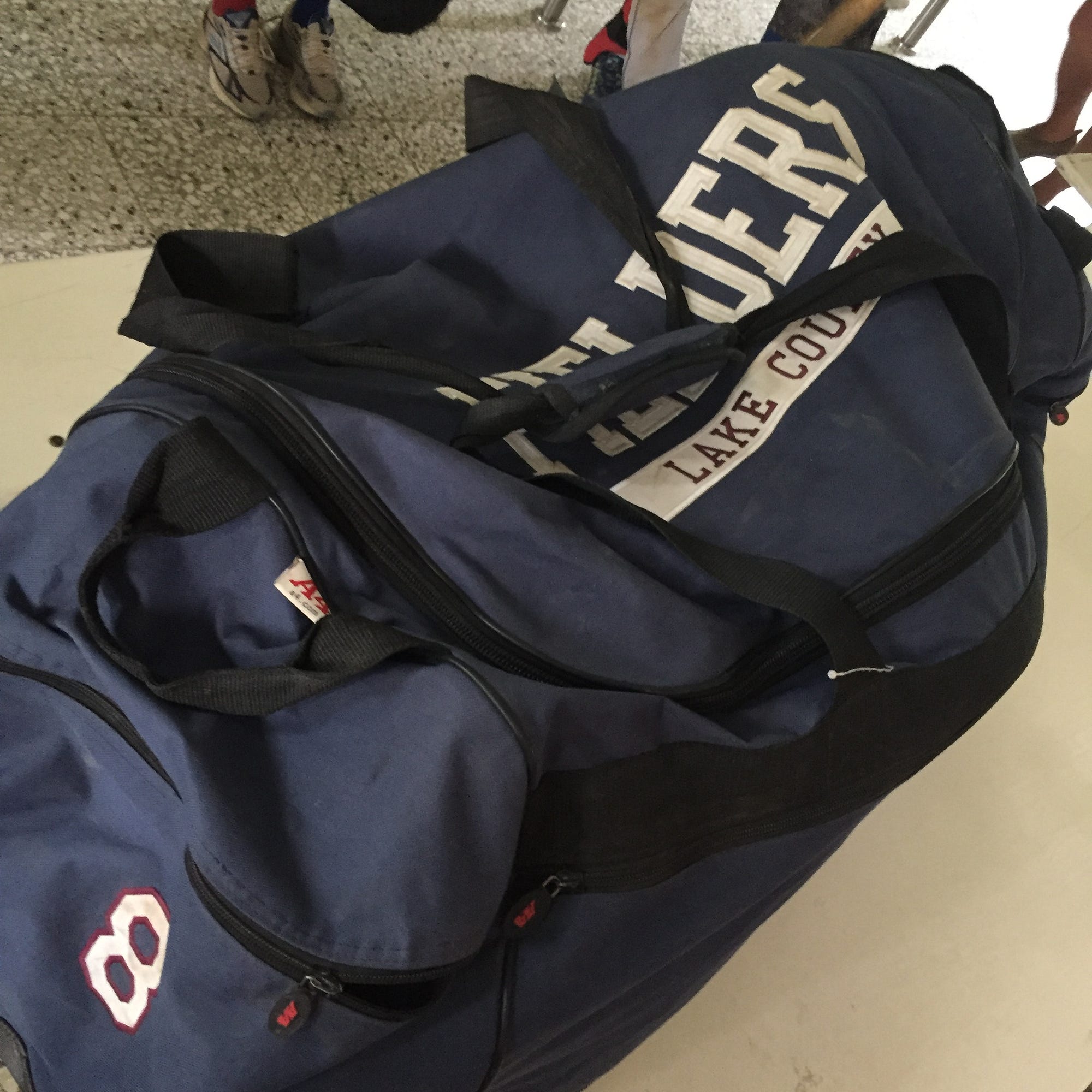
We all parsed out our gear following each game, yet saved a large portion for the orphanage. All of it was appreciated, but we knew that there was also a fundamental difference between donating to the Dominican baseball academies, and to the orphanage. At a glance, the difference wasn’t clear — none of the players we competed against were in matching uniform or wearing the shiny new gear that we Americans wore. They were all in need, but the orphanage still felt different.
Succeeding on Circumstance
I have a distinct memory from my time with the Lake County Fielders baseball team. We were about five weeks into our season and all of our duffle bags were sprawled in the lobby of the hotel in Maui, Hawaii as we met to discuss the future of the team. About half the players had their paychecks bounce for the third time, and we felt it was time to make a stand to the corrupt team owner who had been lying and screwing us out of our paychecks. Many players barely had a comma in their monthly pay, and though the take home was merely a pittance, it helped everyone pay the bills and keep playing.
The older players were hit the hardest. Many were married and had multiple children at home — how would they pay their mortgages and feed their kids now that it was nearing July, and they were still without pay? Our assistant coach, Pete, pulled out a huge roll of cash from his pocket each week and doled out extra money to guys who needed it, trying to help everyone make it home from our seven-week road trip. As the club tried to complete construction on our home ballpark in a near Gurnee, Illinois, they assured us that once we returned to Lake County, all debts would be paid. They just needed the turnstiles to go ‘round and money would flow back into their pockets and ours.
I remember looking at my bank receipt as my my paycheck there in Maui did go through. I had about $1,800 to my name with no rent to pay, no student loans and no credit card debt. I was OK. I didn’t take any handouts from Pete, and at that moment I realized for the first time how lucky I was. My parents paid for my entire college education; I graduated with a degree but without debt, student loans, or anything forcing me to enter the 9–5 world. Because of their sacrifice, I could pursue pro baseball and scrape by if I so chose.
I chose to scrape by.
As I traveled the country playing professional baseball, my navy-blue duffle thrown over my shoulder, I realized how lucky I was to toss it each night into the bottom of a charter bus or onto the scale of an airport check-in desk. I didn’t need the extra cash from Pete’s bankroll — I only needed the equipment in that navy-blue duffle bag. I was a privileged young man who was lucky to grow up in a land of plenty.
Taken From The Rich
As we departed in our team bus from La Otra Banda, I reflected on the journey my duffle bag had made, and it’s final resting place at the orphanage. It felt like a fitting end. The bag was given to me by a rich crook, serving as my silent travel companion and a witness to all of the highs and lows of my baseball career. It traveled a lot of miles since I fled with it.
The bag was just a bag, and could have been thrown away years ago if I had cleaned out my closet. It could have been tossed into a landfill just because. But now, it’s got new life and will undoubtedly be used until the last stitch breaks, until it can longer hold itself together from point A to point B. With the gloves, balls, bats and cleats inside, maybe a young man pulls himself out of poverty and shines on the big stage of Major League baseball.
The path to La Otra Banda was long, but it was worth it.
